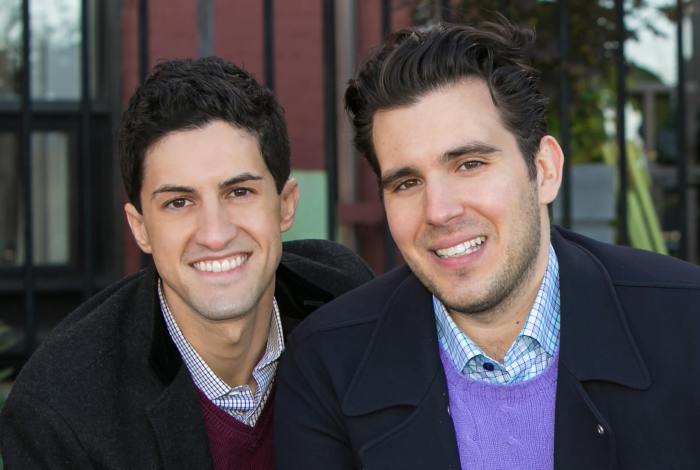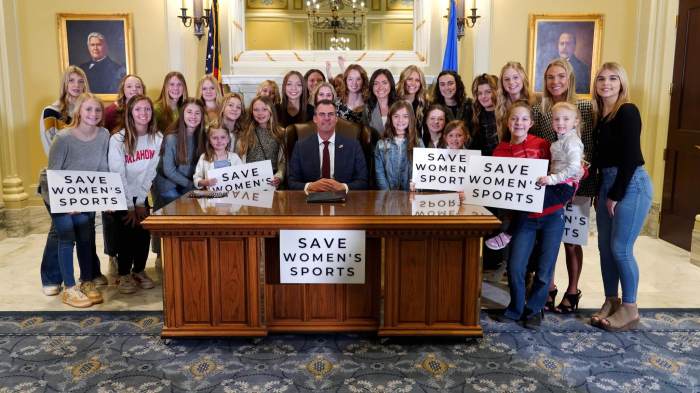A three-judge panel of the US Court of Appeals for the Eighth Circuit unanimously affirmed a preliminary injunction issued by US District Judge James M. Moody, Jr., last summer, blocking Arkansas’s Act 626 from going into effect. The ruling was announced on August 25.
Act 626, titled the “Arkansas Save Adolescents from Experimentation (“SAFE”) Act, passed the Arkansas Legislature in April 2021 over Governor Asa Hutchinson’s veto. It was the first state law to prohibit doctors from providing “gender transition procedures” to minors.
Due to the “political” composition of the three-judge panel that issued the August 25 ruling, however, it seems likely that Arkansas Attorney General Leslie Rutledge’s plan to seek review of this ruling by the full Eighth Circuit bench will be successful, which may lead to the US Supreme Court confronting the question of whether states can forbid such medical care as early as next year.
Judge Moody was appointed by President Barack Obama and took the bench in 2014 after his father, James M. Moody, Sr., retired as a judge from the same court, the US District Court for the Eastern District of Arkansas.
The decision for the three-judge panel was written by Judge Jane L. Kelly, the only judge of the Eighth Circuit appointed by President Obama. Another member of the panel, District Judge Katherine M. Menendez of the US District Court of Minnesota, was appointed by President Joe Biden, and was “sitting by designation.” (Because of a shortage of circuit judges, district judges are frequently “designated” to sit on three-judge circuit panels.) The third member of the panel, Judge James B. Loken, was appointed by President George HW Bush in 1990, and is a former chief judge of the circuit.
The Eighth Circuit is probably the most conservative Republican-appointed circuit in the nation. Of the 11 active judges, five were appointed by President George W. Bush and four by President Donald J. Trump. Although President Bill Clinton appointed three judges to the Eighth Circuit, all of his appointees died or have retired. There are also three semi-retired senior judges who still sit on panels to hear cases, all of whom were appointed by one of the Bushes. Thus, the three-judge panel that upheld Judge Moody’s injunction is not “politically” representative of the circuit, and it will probably not be hard for Attorney General Rutledge to get a majority of the 11 active judges to vote to grant rehearing en banc. If such rehearing is granted, the three-judge panel decision is “vacated” and the full active bench of the court will hear new arguments before rendering a decision. If they reverse Judge Moody’s injunction, the law will go into effect unless either the Eighth Circuit or the Supreme Court agrees to stay the en banc ruling while the plaintiffs, represented by the American Civil Liberties Union and cooperating attorneys from several law firms, petition the Supreme Court for review.
The practical result of the law going into effect would be for transgender minors who are receiving gender-affirming care or who seek to start such care to have to go out of state for their treatment, and their Arkansas doctors are prohibited by the statute from referring them to another physician for treatment. Insurance companies and the state’s Medicaid program are prohibited from paying for such care. Doctors who performed prohibited procedures can be subjected to loss of their license to practice medicine in Arkansas, and they can be sued for damages, including enforcement actions by the state attorney general’s office.
Judge Moody’s decision, announced in court after a hearing on July 21, 2021, and supplemented by a written opinion on August 2, 2021, found that Act 626 most likely violates the equal protection rights of transgender minors, the due process rights of their parents, and the free speech rights of doctors who are prohibited by the law from making referrals.
Moody’s equal protection ruling relied in part on the Supreme Court’s 2020 decision in Bostock v. Clayton County, which held that discrimination based on transgender status is a form of sex discrimination, requiring the state to show an important interest to support the law. Judge Moody found the interests stated by Arkansas — to protect minors from “experimental” treatments and to regulate medical ethics — were pretextual, as amicus briefs submitted by medical associations showed a strong professional consensus that gender transition procedures provided to minors are safe and necessary to treat the serious condition of gender dysphoria. The due process ruling relied on the fundamental right of parents to provide appropriate medical treatment for their children, and the statute’s restrictions on physician speech presented obvious freedom of speech issues. Judge Moody particularly noted that letting the law go into effect would disrupt the ongoing treatment of transgender minors, including some of the named plaintiffs in the case, causing them irreparable injuries.
Judge Kelly’s decision for the appellate panel was brief and to the point. “Arkansas’s characterization of the Act as creating a distinction on the basis of a medical procedure rather than sex is unpersuasive,” she wrote. “The biological sex of the minor patient is the basis on which the law distinguishes between those who may receive certain types of medical care and those who may not. The Act is therefore subject to heightened scrutiny.”
The court found that the record before Judge Moody “provides substantial evidence” to support his factual finding that “the Act prohibits medical treatment that conforms with ‘the recognized standard of care for adolescent gender dysphoria,’ that such treatment ‘is supported by medical evidence that has been subject to rigorous study,’ and that the purpose of the Act is ‘not to ban a treatment [but] to ban an outcome that the State deems undesirable.’” The court rejected Arkansas’s argument that Moody failed to consider the medical evidence that the state presented, which contradicted the medical evidence presented by the plaintiffs. The court found no “clear error” by Judge Moody in his weighing of the evidence, which is the standard of review for a district judge’s exercise of discretion in granting a preliminary injunction. Judge Kelly devoted two long paragraphs to summarizing the medical evidence supporting Judge Moody’s conclusions.
“In light of those findings,” wrote Kelly, “the district court did not err in concluding Act 626 is not substantially related to Arkansas’s interests in protecting children from experimental medical treatment and regulating medical ethics, and Plaintiffs have demonstrated a likelihood of success on the merits of their equal protection claim.”
The court of appeals panel did not discuss the other legal theories supporting Moody’s preliminary injunction, as the equal protection analysis was sufficient to support his ruling, and noted particularly Moody’s finding that “if Act 626 went into effect, Minor Plaintiffs would be denied access to hormone treatment (including needing to stop treatment already underway), undergo endogenous puberty — a process that cannot be reversed — and suffer heightened gender dysphoria. These factual findings are supported by Minor Plaintiffs’ affidavits and are not clearly erroneous,” wrote Judge Kelly. “The findings support the conclusion that Plaintiffs will suffer irreparable harm absent a preliminary injunction.” The court noted that it is “always in the public interest” to vindicate constitutional rights.
Given the political sensitivities of the case, it is likely that the full circuit will move quickly to vote on Attorney General Rutledge’s anticipated motion for rehearing en banc, so things are likely to move quickly.
The lead attorney for the plaintiffs is the ACLU’s Chase B. Strangio, a nationally recognized transgender rights advocate who hailed the panel ruling in an interview with the Associated Press.
“The Eighth Circuit was abundantly clear that the state’s ban on care does not advance any important governmental interest and the state’s defense of the law is lacking in legal or evidentiary support,” he said. “The state has no business categorically singling out this care for prohibition.”
Arkansas’s enactment of the law inspired opponents of transgender rights in several other states. In Florida, at Governor Ron DeSantis’s instruction, the state health department has issued guidelines against provision of such treatment to minors, and the state’s Medicaid agency has announced that it will no longer cover these procedures. Similar steps were initiated by Governor Greg Abbott in Texas. The ACLU has indicated that all attempts by states to prohibit gender-affirming care for transgender minors will be challenged in court.





























